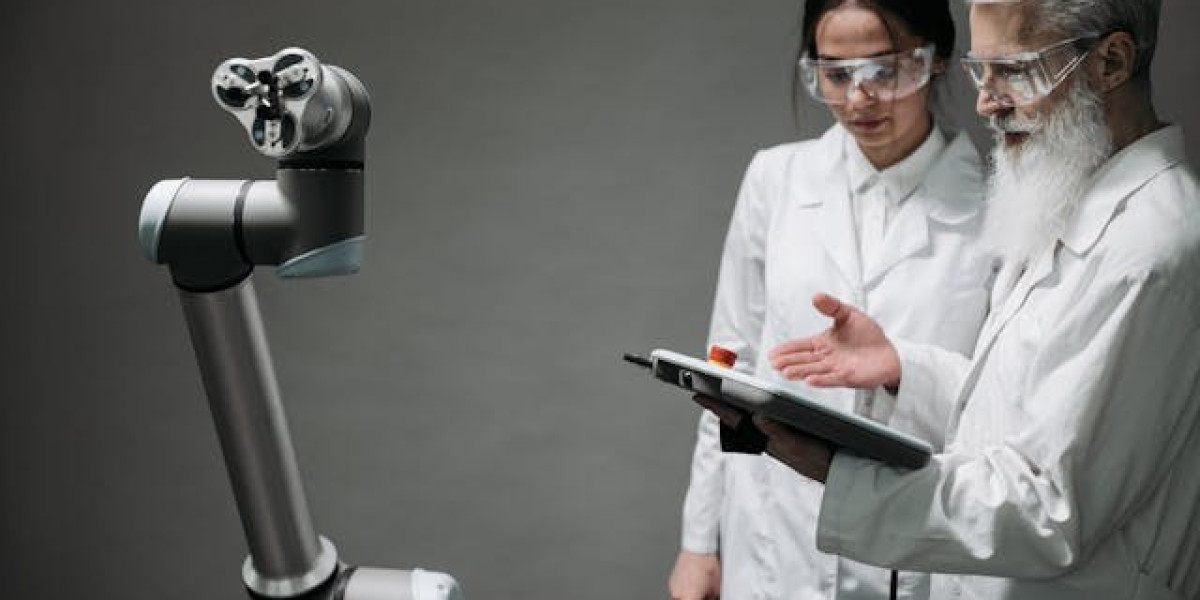1. Introduction
Robotic Process Automation (RPA) has become a game-changing technology in the accounting industry. RPA automates repetitive operations and processes in accounting workflows by using software robots, or bots. Because these bots are designed to behave like humans do within digital systems, data processing can be done more accurately and efficiently. RPA has a significant impact on accounting, changing conventional procedures and the function of accountants in contemporary companies. This post will explore the ways that RPA is changing the accounting industry and how practitioners can adjust to these developments to stay successful in their line of work.
2. Evolution of Accounting with RPA
Historical Perspective on Accounting Processes Pre-RPA: Accounting has traditionally been a labor-intensive field, with professionals spending significant time on repetitive, manual tasks like data entry, reconciliation, and report generation. These processes were not only time-consuming but also prone to errors due to human fallibility. The reliance on paper-based documents and spreadsheets made the workflow even more cumbersome and inefficient.
Explanation of How RPA Has Revolutionized Accounting Tasks and Workflows:
The accounting industry has seen a tremendous upheaval since the introduction of robotic process automation (RPA). RPA software robots may execute rule-based activities including data entry, extraction, validation, and even decision-making processes by imitating human movements. RPA frees up accountants to concentrate on more important tasks that call for analysis and critical thinking by automating these repetitive processes.
Accounting procedures are streamlined by RPA since it can do jobs quickly and accurately around-the-clock without requiring supervision or pauses. This improves operational effectiveness while lowering the possibility of errors, which are frequent in manual operations. Through the integration of many systems and apps, RPA offers real-time visibility into financial data, empowering accountants to make deft judgments based on current knowledge.
After putting everything above together, we can say that RPA has completely changed the accounting industry by improving efficiency, accuracy, and compliance while allowing accountants to concentrate on higher-value work that spurs innovation and business expansion instead of menial jobs. A new era in which technology enhances human expertise to build a more flexible and effective financial ecosystem is heralded by the evolution of accounting with RPA.
3. Benefits of Implementing RPA in Accounting
Organizations can gain a number of advantages from implementing robotic process automation (RPA) in accounting. First off, it improves data entry and analysis operations' accuracy and efficiency. RPA lowers the possibility of human error by automating repetitive processes like data entry and information processing, resulting in more accurate and dependable financial records.
Second, RPA in accounting results in notable cost savings. Workflows are streamlined via automation, which helps organizations save time and money. Businesses can improve operational efficiencies and reduce personnel expenses associated with manual data entry and reconciliation by increasing productivity and eliminating manual chores.
Using RPA improves adherence to the rules and legislation pertaining to financial reporting. Automated procedures guarantee precision and consistency in tasks linked to compliance, lowering the possibility of mistakes in regulatory filings or non-compliance fines. Compliance standards can be more successfully upheld by businesses if they regularly adhere to predetermined norms.
As I mentioned above, implementing RPA in accounting increases overall compliance with laws and regulations, increases productivity, and saves money through process automation. It also enhances accuracy and efficiency. Businesses that use RPA can improve performance and regulatory compliance by streamlining their accounting processes.
4. Challenges and Considerations
There are unique difficulties associated with implementing robotic process automation (RPA) in accounting organizations. An important obstacle is employee reluctance to change. Implementing automation may cause people to worry about their job security or how it will affect their current responsibilities; this calls for appropriate change management and communication techniques.
The difficulty of integrating RPA with legacy systems is another obstacle. During the implementation stage, compatibility problems and the requirement for system updates or adjustments may provide challenges. For the shift to go smoothly, employees must be properly trained to coexist with robots and taught how to efficiently oversee automated procedures.
Conducting a comprehensive process analysis to identify jobs eligible for automation is one of the considerations for a successful integration of RPA into accounting processes. Prioritizing routine, rule-based operations that take a lot of time for human workers but are excellent candidates for automation is crucial.
It is essential to choose the appropriate RPA technologies and solutions based on the unique requirements of the company. Before choosing a solution, consider factors such as scalability, usability, compatibility with current software systems, and security features. When implementing RPA technologies in accounting procedures, it is essential to make investments in strong cybersecurity defenses to safeguard confidential financial data from possible attacks.
5. Future Outlook for Accounting Industry with RPA
With robotic process automation (RPA), the accounting sector has a very promising future. It is anticipated that RPA will continue to influence accounting procedures by increasing accuracy, automating monotonous work, and freeing up accountants' time for more strategic and analytical work. RPA systems will develop in sophistication as technology moves forward, combining with other technologies like machine learning and artificial intelligence to improve accounting departments' decision-making procedures.
There will be a big change in the kind of jobs in the accounting profession as automation increases. Even though some repetitive operations might be automated, accountants' roles are unlikely to vanish; instead, they will change. Upskilling in areas like data analysis, the interpretation of complicated financial information, and strategic decision-making will be necessary for accountants to adjust to these developments. Strong analytical abilities and the capacity to make efficient use of automation techniques will make accountants more in demand.
In an automated workplace, accountants have several options to upskill. Experts can increase their understanding of RPA-related developing technologies, business intelligence tools, and data analytics. Accounting professionals can become important assets in their organizations by developing these abilities, which will enable them to take on more advisory responsibilities and participate in higher-level strategic projects. In the changing accounting landscape, adopting automation and upskilling can result in better productivity, more job satisfaction, and more prospects for career growth.



